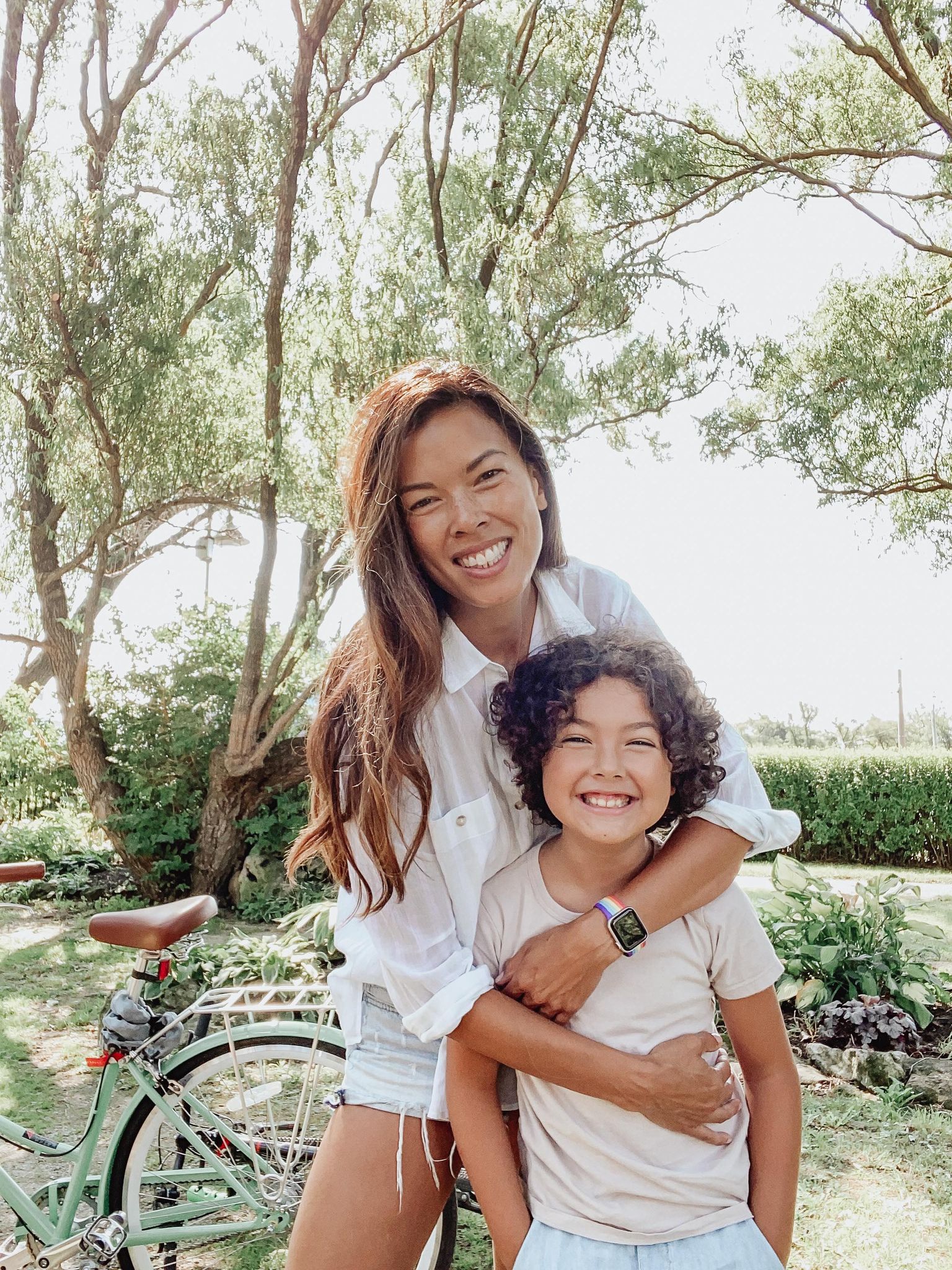Is it possible to work on saving the planet while parenting?
In my opinion, the answer is an absolute yes, but I think it’s crucial that we do so from a place of kindness and self-love.
Regardless of our individual parenting styles, it is so common these days to feel debilitating pressure and the crushing weight of our own self-imposed expectations and perceived societal norms when it comes to raising our kids.
Caring for the planet while we care for our loved ones is a lifestyle choice, and although we’ll find many occasions to celebrate our successes, there will be moments when we’ll feel as if we are falling short, and it’s important not to shame or persecute ourselves in those instances. Making eco-friendly choices for our families means that our small, daily decisions can have a big impact on the health of the planet, but where we find ourselves on the spectrum of eco-awareness will vary from family to family—and that’s okay.
I like to consider this lifestyle choice as a journey. While I may have found my footing at this point, there are certainly folk well ahead of me who I turn to for inspiration and whom I admire, and there are others at earlier stages who I am excited to help out.
Eco-friendly parenting is a decision you, or yourself, and a partner make for your family, but it also draws you into a bigger collective. Lean on and learn from your community. Be open to new ideas and share your successes and failures. We are all in this together for the greater good and the good of our families and remember that every little thing you do to support the health of the planet makes a difference.
Leading by example is a great way for your kids to grow up caring about the earth. As young children, they might notice and imitate your habits, and as they grow older they can start to ask questions, be more involved, and have a greater understanding of how the choices we make affect the planet.
At age nine, my son can have a reasonably active role in our eco-friendly choices. One of his jobs is to carry our reusable grocery bags to the store and, in doing so, he understands the importance of minimizing our use of plastic bags. We make it a priority and a part of the activity—just as I would not leave my house without my keys and wallet, if we are taking a trip to the market we will not leave without grocery bags. He carries them, and then we both share in packing and carrying our goodies home, and he hangs the bags up to be used on our next trip.
By having him involved in every step of the process he sees the cycle of the reusable bag and how it contributes zero waste after we use it.
Through my work, I receive a fair amount of packages, and my son is also in charge of the unboxing. He sees what comes in and how it is packaged and will remark on how some brands are so wasteful using a giant box for a tiny item or a ton of unnecessary plastic. We take note of brands that pack in recyclable packaging or use compostable peanuts or packing. He is becoming more and more aware because he sees the effort and conversely the waste first-hand. Together, we save tissue and gift bags from these deliveries and store them to repurpose for birthdays and presents.
In our home, we address the issue of food waste not only by donating to food banks in our neighbourhood, but also by having my son scrape the food he leaves into the compost. On the one hand, he has learnt to separate our refuse and dispose of it responsibly, and on the other hand, he is aware of how much he is wasting when he doesn’t finish his school lunch since he is the one who has to throw it out.
We use reusable bento boxes and beeswax bags, refillable water bottles, and bamboo cutlery for his school lunches and snacks. He helps dry all of those items after I wash them and shares in the packing and filling. When he does have a granola bar or something that comes in a wrapper, he is conscious of disposing of it properly. Again, having him involved in many of the details of low waste living leads to a greater understanding of the impact of our choices, and having it part of our everyday routine normalizes those choices.
I can’t recall having a box of plastic wrap in the house, and I don’t think my son has ever noticed the absence; it is my hope that when he grows up, this way of thinking will be a force of habit for him, and he will continue to make eco-conscious decisions for his own family.
Exposing him to age-appropriate books and TV shows like the “Our Planet” and “Blue Planet” series are so fundamental in his understanding of the global impact of our choices. We are plant-based, and while this dietary decision is often met with uncertainty and confusion, these documentaries show a plant-based diet is revered as a way to support the health of the Earth. And while I can certainly explain recycling on a local level to him, seeing the destruction of the coral reef truly hits home in a way that I can’t do on my own.
Having said that, encouraging a love for and respect for nature is something we can all do—regardless of our proximity to an ocean. Our condo is full of houseplants he helps take care of, and we are out walking in nature whenever we can. Our walks are pleasantly mindful; we stop and notice bird calls and budding flowers; we observe bumblebees in the summer and young ducklings in the spring. Last year, a friend showed us how to hatch a caterpillar and nurture it into a monarch butterfly—a glorious experience we won’t soon forget.
We tried planting a garden on our balcony, but at our height, sadly, nothing we planted could be pollinated. This unintentional lesson had a huge impact, and we both realized how crucial the bees are.
Simple actions in our home like turning lights off to conserve electricity are important. My son does his own laundry and empowering him to be in charge of this process helps him understand the impact of his choices; he sees that the detergent strips we have switched to have no waste versus conventional laundry jugs, and he makes sure that the washing machine is always full before he runs it off.
When he outgrows his clothes, we donate them or share them with friends. We sort and clean them, folding them and bagging them, and he is involved in the process from the selection and the sorting to the delivery or the donation drop-off. Following the process from beginning to end really helps your kids understand the life cycle of their items.
We recently set up an impromptu book giveaway in our neighbourhood park where we shared books he had outgrown, giving new life and sharing his joy of reading. For his last birthday, we partnered with an eco-charity to offer our friends the option to donate in lieu of gifts.
We are so fortunate to have most of what we need to be comfortable in life; teaching our kids to help and share where we can is such a rewarding lesson for everyone involved.
There are so many ways to care for the planet and take great joy in doing so. Being a conscientious human is not only our responsibility, but also something we can take great pride and pleasure in, and the gift of eco-awareness and the hope of a future for the planet that my son can enjoy is something I am honoured to share with my family.
~


 Share on bsky
Share on bsky





Read 2 comments and reply